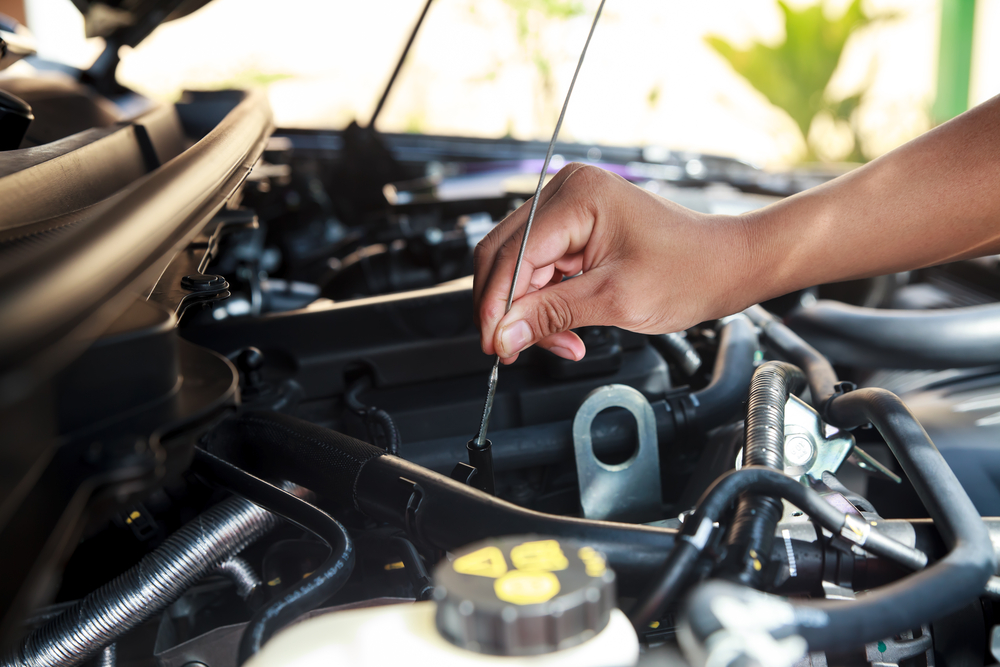All Categories
Featured
Responsible for synchronizing the turning of the crankshaft and camshaft, the timing belt makes certain the engine's shutoffs close and open at the correct times throughout the burning process. If the timing belt fails, it can result in extreme engine damage.
What Is a Timing Belt? The timing belt is a long, toothed rubber or composite belt that connects the crankshaft to the camshaft(s) in an internal burning engine. Its job is to maintain the engine's shutoffs and pistons in sync, making certain the engine runs efficiently. The timing belt also controls other essential engine features like the water pump and the power steering pump, depending on the lorry.
![]()
Without the appropriate timing, the engine's shutoffs and pistons can collide, leading to considerable and costly damages. Therefore, replacing the timing belt on schedule is one of the best methods to ensure your engine operates at its ideal and prevent costly repairs.
Why Timing Belt Substitute Matters. Protecting Against Catastrophic Engine Damage: The most substantial threat of not replacing a worn timing belt is engine failing. If the timing belt breaks while the engine is running, the camshaft and crankshaft can end up being misaligned, triggering the pistons and valves to collide. This can result in curved valves, harmed pistons, or perhaps a damaged engine. Changing the timing belt at the recommended intervals is the most effective way to stop such devastating damages, saving you from the stress and anxiety and high expense of engine repair services or substitute.
![]()
Keeping Engine Performance: A timing belt that's in good problem makes certain that all engine components function in best consistency. If the timing belt is used or stretched, it can cause the engine to shed power, experience harsh idling, or battle to begin. By changing the timing belt on a regular basis, you can maintain your engine running at peak performance, which aids preserve optimum fuel economic climate and performance.
Avoiding Unexpected Break downs: A busted timing belt can create your engine to quit suddenly, possibly leaving you stranded in the middle of a trip. By changing your timing belt in a timely manner, you minimize the threat of sudden breakdowns that can leave you in a hazardous or troublesome circumstance. Regular upkeep lowers the chances of experiencing these type of disturbances, assisting you remain on the roadway longer without bothering with your engine failing.
Affordable Upkeep: Timing belt substitute is much less costly than fixing or changing an engine that's been harmed because of a timing belt failing. While the price of replacing the timing belt might vary depending upon your lorry and its area, it is far extra budget-friendly than the prices connected with significant engine repair services or substitutes. Changing your timing belt at the advised periods can conserve you a considerable quantity of cash over the long term by preventing damage to your engine.
When Should You Change Your Timing Belt? The timing belt does not last forever, and most producers suggest changing it in between 60,000 and 100,000 miles. Nonetheless, the precise timing depends upon your car's make, version, and driving problems, so it's vital to examine your owner's manual for particular guidance.
Signs that your timing belt may require interest consist of uncommon engine sounds (such as a shrill whining or ticking noise), difficulty starting the engine, or a reduction in engine efficiency. It's vital to have the timing belt evaluated by a specialist mechanic. if you see any of these indications.
![]()
Conclusion. The timing belt is a tiny yet essential component of your engine, and routine substitute is key to keeping your automobile's efficiency and protecting against expensive damages. By remaining on top of timing belt upkeep, you'll ensure your engine runs efficiently, stay clear of unanticipated failures, and shield your automobile from significant repair services. Maintain an eye on your lorry's suggested timing belt replacement routine, and constantly speak with a trusted mechanic to keep your engine running efficiently for several years to come.
What Is a Timing Belt? The timing belt is a long, toothed rubber or composite belt that connects the crankshaft to the camshaft(s) in an internal burning engine. Its job is to maintain the engine's shutoffs and pistons in sync, making certain the engine runs efficiently. The timing belt also controls other essential engine features like the water pump and the power steering pump, depending on the lorry.

Without the appropriate timing, the engine's shutoffs and pistons can collide, leading to considerable and costly damages. Therefore, replacing the timing belt on schedule is one of the best methods to ensure your engine operates at its ideal and prevent costly repairs.
Why Timing Belt Substitute Matters. Protecting Against Catastrophic Engine Damage: The most substantial threat of not replacing a worn timing belt is engine failing. If the timing belt breaks while the engine is running, the camshaft and crankshaft can end up being misaligned, triggering the pistons and valves to collide. This can result in curved valves, harmed pistons, or perhaps a damaged engine. Changing the timing belt at the recommended intervals is the most effective way to stop such devastating damages, saving you from the stress and anxiety and high expense of engine repair services or substitute.

Keeping Engine Performance: A timing belt that's in good problem makes certain that all engine components function in best consistency. If the timing belt is used or stretched, it can cause the engine to shed power, experience harsh idling, or battle to begin. By changing the timing belt on a regular basis, you can maintain your engine running at peak performance, which aids preserve optimum fuel economic climate and performance.
Avoiding Unexpected Break downs: A busted timing belt can create your engine to quit suddenly, possibly leaving you stranded in the middle of a trip. By changing your timing belt in a timely manner, you minimize the threat of sudden breakdowns that can leave you in a hazardous or troublesome circumstance. Regular upkeep lowers the chances of experiencing these type of disturbances, assisting you remain on the roadway longer without bothering with your engine failing.
Affordable Upkeep: Timing belt substitute is much less costly than fixing or changing an engine that's been harmed because of a timing belt failing. While the price of replacing the timing belt might vary depending upon your lorry and its area, it is far extra budget-friendly than the prices connected with significant engine repair services or substitutes. Changing your timing belt at the advised periods can conserve you a considerable quantity of cash over the long term by preventing damage to your engine.
When Should You Change Your Timing Belt? The timing belt does not last forever, and most producers suggest changing it in between 60,000 and 100,000 miles. Nonetheless, the precise timing depends upon your car's make, version, and driving problems, so it's vital to examine your owner's manual for particular guidance.
Signs that your timing belt may require interest consist of uncommon engine sounds (such as a shrill whining or ticking noise), difficulty starting the engine, or a reduction in engine efficiency. It's vital to have the timing belt evaluated by a specialist mechanic. if you see any of these indications.

Conclusion. The timing belt is a tiny yet essential component of your engine, and routine substitute is key to keeping your automobile's efficiency and protecting against expensive damages. By remaining on top of timing belt upkeep, you'll ensure your engine runs efficiently, stay clear of unanticipated failures, and shield your automobile from significant repair services. Maintain an eye on your lorry's suggested timing belt replacement routine, and constantly speak with a trusted mechanic to keep your engine running efficiently for several years to come.
Latest Posts
Why Select Montana Fencing's Wood Fencing for Your Home?
Published May 12, 25
1 min read
Trustworthy Industrial Roof Covering Providers by Weathercraft
Published May 12, 25
2 min read
Need Auto Repair Locally? Discover Car-X St. Louis for Reliable Solutions
Published May 12, 25
1 min read
More
Latest Posts
Why Select Montana Fencing's Wood Fencing for Your Home?
Published May 12, 25
1 min read
Trustworthy Industrial Roof Covering Providers by Weathercraft
Published May 12, 25
2 min read
Need Auto Repair Locally? Discover Car-X St. Louis for Reliable Solutions
Published May 12, 25
1 min read